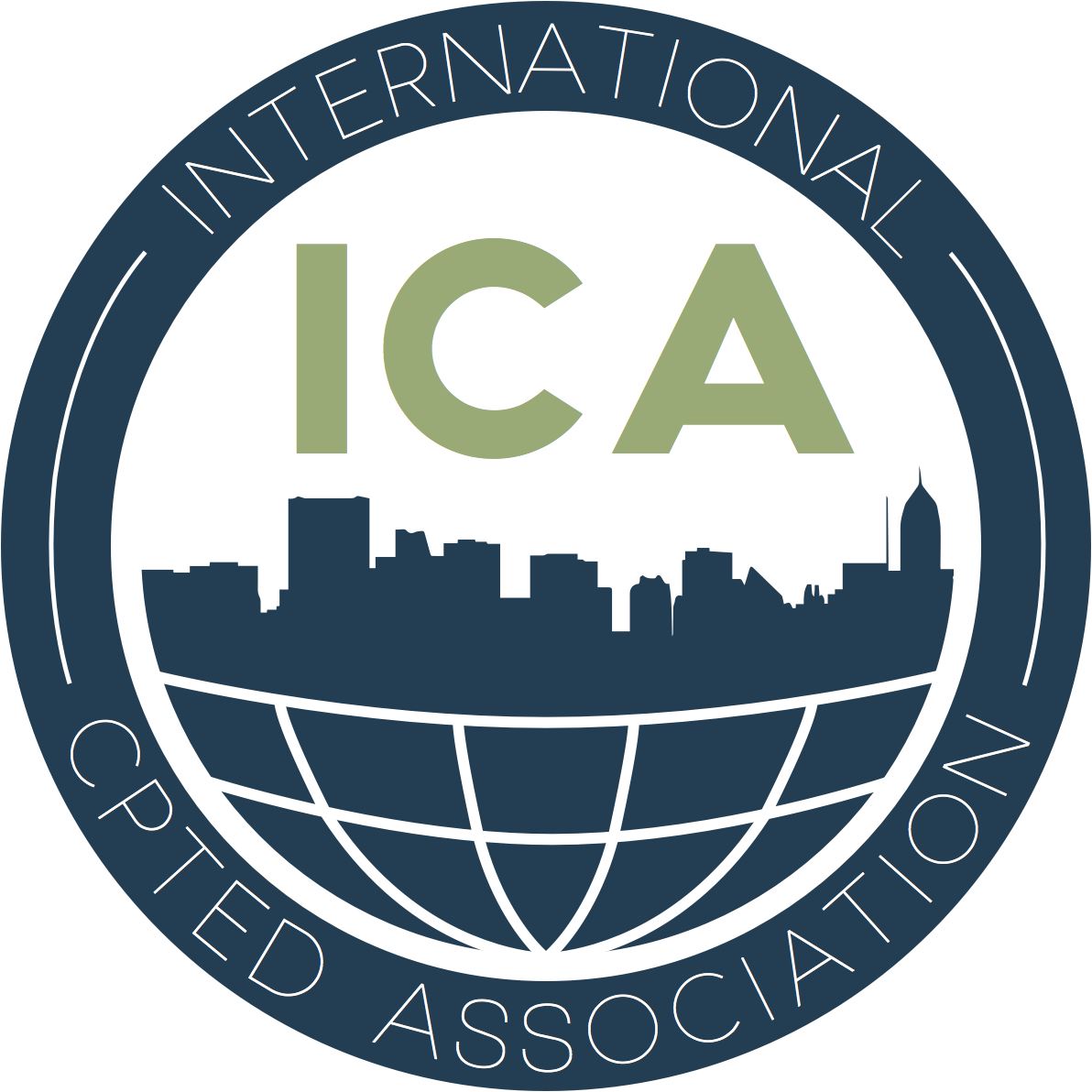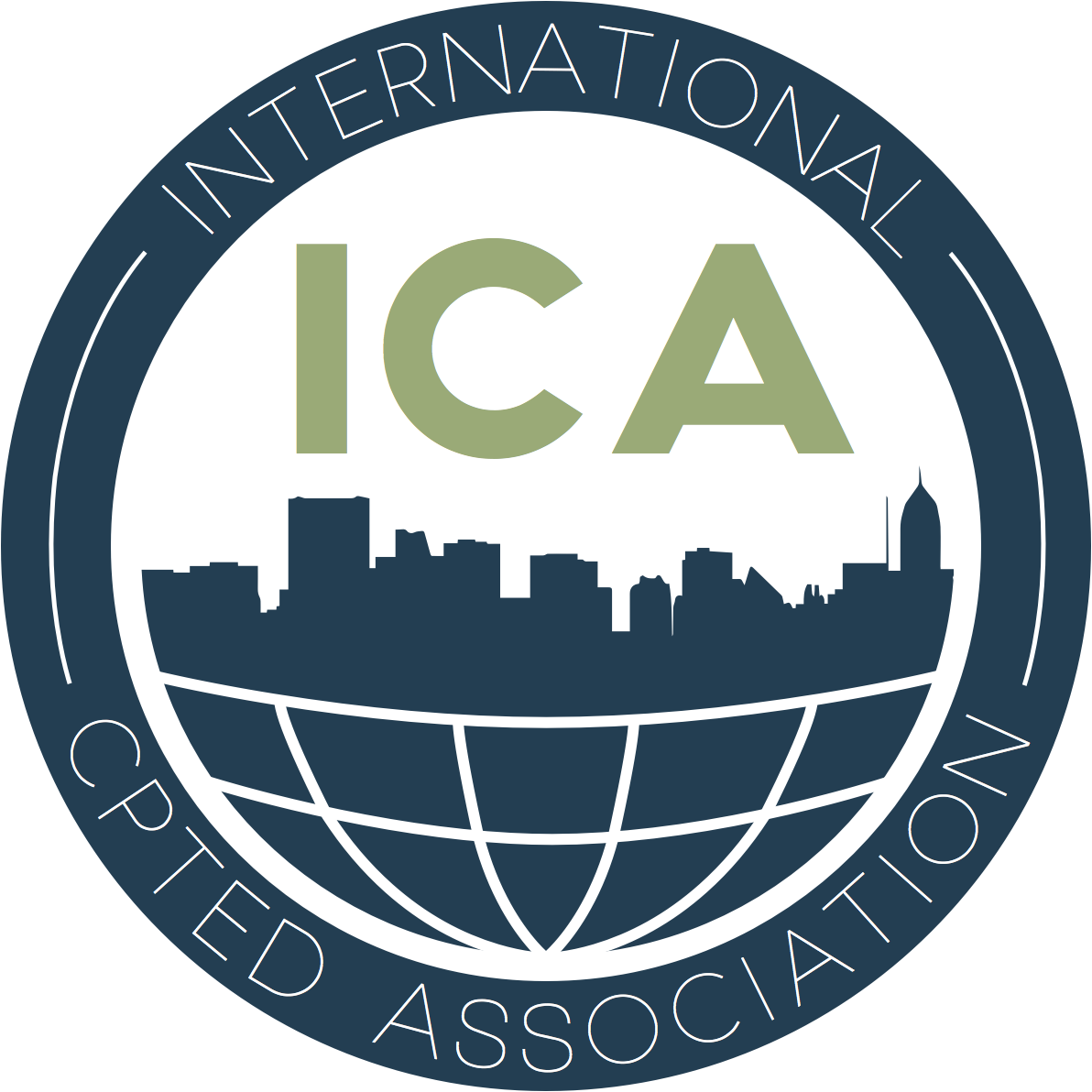Designing Safe Communities with CPTED E-course
(ICA CAP Accredited - Class B) 
May 10 - August 27, 2021
CPTED Certification Class Offered
Atlas offers a world-recognized CPTED Practitioners Certification program through Atlas Safety and Security Design, Inc. and is approved at a Class B level by the International CPTED Association (ICA) Course Accreditation Program. The professional version has 30 AIA accepted Health Safety Welfare (HSW) credits for architects and is accepted as a continuing education credit course for law enforcement certification, urban planners, landscape architects, security directors needing credits for their Certified Protection Professional (CPP) certification from ASIS International. The course is offered every semester as an on-line E-Learning class that upon your successful completion, issues a recognizable nationally accepted certificate signed by Randy Atlas Ph.D., FAIA, CPP.
Designing Safe Communities with CPTED
CPTED, or Crime Prevention Through Environmental Design is a holistic approach to design security into the built environment and make it more resilient and unattractive for incivilities, crime, violence, and terror. CPTED is based upon the concept that proper design and effective use of the built environment, can lead to a reduction in both the incidence and fear of crime (predatory stranger to stranger crime, and terrorism), while improving the quality of life (where we live, work, and play). CPTED strategies developed from this multi-disciplinary approach have been adopted by numerous professional organizations, and cities, internationally. Designing Safe Communities with CPTED is a class that reflects the most current knowledge and practice of crime prevention into the built environment, and directly applicable to today’s world of threats and vulnerabilities, including street crime, workplace violence, and acts of terrorism.
Taught by America’s premier CPTED trainer, Dr. Atlas is a registered architect, criminologist, ASIS International Certified Protection Professional, and International CPTED Association CPTED Certified. This course represents the most complete and comprehensive collection of CPTED information to be readily accessible to the fields of architecture, landscape architecture, urban planning, security, property management, education, and law enforcement communities. Facilitating understanding across different fields, this course explains the architecture process to security directors, and the security design risk assessment process to architects.
Providing step-by-step guidance for applying real-world concepts, principles, and practices on building security and CPTED, the course starts with the risk threat assessment and considers the relevant factors and variables, all the way through design, construction, and post-occupancy evaluation. Highly relevant to critical infrastructure protection, this course demonstrates CPTED implementation in high-security environments, as well as public and private sector buildings, parks, hospitals, shopping centers and retail environments, single family and multi-family housing, mixed–use environments, banks and ATMs, universities and schools. The course addresses specialization in security system design and planning, crime prevention, blast mitigation, chemical, biological, and nuclear threat protection. Participants will learn how to design, and apply the principals and practices of CPTED, and how spaces and planning influences behavior of the uses and users of facilities. Participants will have practical exercises and case studies, ultimately earning their Basic CPTED Practitioner certificate.
The course is a practical resource and guide for architects, security directors, law enforcement, Homeland Security professionals, and building and property managers; Designing Safe Communities with CPTED addresses how CPTED is applicable to critical infrastructure protection in the continuing effort for homeland security.
The course is accredited under the ICA's Course Accreditation Program (CAP) - Class B. Any candidates completing this course will be exempt from the following 5 (out of 11) competencies should they wish to pursue Professional Certification under the ICA's Individual CPTED Certification Program (ICCP):
- Competency Unit 01 - Define Scope of Task/Project
- Competency Unit 04 - Read and Interpret Plans & Drawings
- Competency Unit 07 - Analyze and Assess Underlying Conditions
- Competency Unit 08 - Compile Written Report
- Competency Unit 09 - Assess CPTED Options
Upon successful completion of the course, the student will receive their designation as a CPTED Practitioner, and will have done hands-on practice in conducting CPTED assessments, plan reviews, and field-work. The Designing Safe Communities with CPTED course includes forty-hours of instruction in Basic and Advanced skills in Crime Prevention Through Environmental Design (CPTED). The course provides recipients with their CPTED Practitioner certificate that is accepted in Broward County, the State of Florida, and recognized nationally, and internationally.
This class is worth the following CEUs:
- Architects = 30 AIA LU/HSW/SD & State of Florida DPR
- Landscape Architects = 40 State of Florida DPR
- Planners and Urban Designers = 17 AICP CM credits
- Security Professionals = 40 CEU Credits from ASIS International
Course is certified/accredited by:
- Quality Matters eLearning Course
- International CPTED Association (ICA-CAP Class B)
More information:
Required Text: (available through the publisher):
Atlas, Randy. (2013) 21st Century Security and CPTED. 2nd Edition. CRC Press. Taylor and Francis Group. Boca Raton.
Price: US$600
Register for the course at:
https://cpted-security.com/cpted-course/
